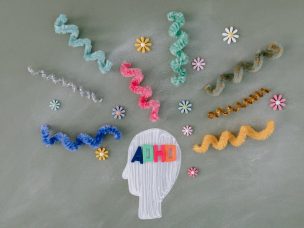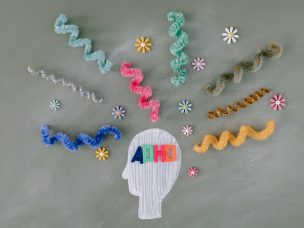ADHD
ADHD Meds Initiation Linked to Lower Rate of All-Cause Mortality
Significantly lower rates seen for all-cause mortality and unnatural-cause mortality, but not natural-cause mortality For individuals diagnosed with attention-deficit/hyperactivity disorder (ADHD), medication initiation is associated with a significantly lower rate of all-cause mortality and unnatural-cause mortality, according to a study published in the March 12 issue of the Journal of the American Medical Association. Lan Li,...
Adult ADHD May Increase Dementia Risk: Exploring the Association
Recent research suggests that adults with attention-deficit/hyperactivity disorder may have a higher risk of developing dementia. A recent cohort study emphasizes the need for clinicians to monitor symptoms of attention-deficit/hyperactivity disorder in older patients. Adult attention-deficit/hyperactivity disorder (ADHD) is found to be associated with an increased risk of dementia. Dementia occurred in a larger percentage...
Link Between Atopic Dermatitis and ADHD in School-Aged Children
Atopic dermatitis in school-aged children may significantly increase the risk of attention-deficit hyperactivity disorder, as shown in a recent study. Identifying the associated risk factors could aid clinicians in implementing timely interventions. A significant percentage (11.25%) of school-aged children with atopic dermatitis also displayed symptoms of attention-deficit hyperactivity disorder. Sleep disorders and elevated levels of...
ADHD Treatment With Transcranial Random Noise Stimulation and Cognitive Training
Medically reviewed by Dr. Kimberly Langdon Cull, M.D. on Sept. 20, 2023 The therapeutic effects of transcranial random noise stimulation and cognitive training on ADHD symptoms are long-lasting, according to a recent study. Attention-deficit/hyperactivity disorder (ADHD), a neurodevelopmental condition that causes inattention, hyperactivity, and impulsivity, affects 5.2% of children globally. Transcranial random noise stimulation (tRNS) uses...
Training to Lower ADHD Teen Driver Inattention
Medically reviewed by Dr. Kimberly Langdon Cull, M.D. on Sept. 20, 2023 This study found that the rate of crashes and near-collisions during driving was lower in teens with ADHD in the year after a computerized skills-training program. Automobile accidents are a major cause of death among young people. Those with attention deficit–hyperactivity disorder (ADHD) are...
Altered Executive Function Networks in Children With ADHD
Children with ADHD struggle with executive functions such as organization and problem-solving. Research suggests that executive dysfunction is not only a consequence of ADHD, but also a potential contributing factor to the development of the disorder. Executive dysfunction is a central component of ADHD. Children with ADHD show delayed development of executive functioning. Network analyses...
ADHD Symptoms Correlate with Gray Matter in the Pallidum of the Brain
MRI brain scans from children, adolescents, and adults with ADHD found age-related differences in parts of the basal ganglia, which regulates voluntary movement. The findings suggest that variations in the structure of the pallidum could contribute to the changing symptoms of ADHD throughout an individual’s life. ADHD is defined by impulsivity and poor attention. Symptoms...
Tic Disorder Exacerbates ADHD Symptoms in Children
ADHD and persistent tic disorder are highly comorbid in children, and this relationship may be due to unique underlying neural structures. When both disorders are present, symptoms tend to be more severe, but it is primarily the ADHD that contributes to the behavioral dysfunction experienced by these children. Many children with ADHD also have persistent...
The Challenge ADHD Patients Experience in Processing Facial Emotions
People with ADHD struggle to recognize the facial expressions of others. Poor facial emotion recognition is linked to inattention, impulsivity, hyperactivity, and anxiety. Moreover, research has shown that individuals with ADHD are more likely to misinterpret social cues and experience social difficulties. ADHD can make it difficult to process the emotional displays of others. Children,...
More Medical News














